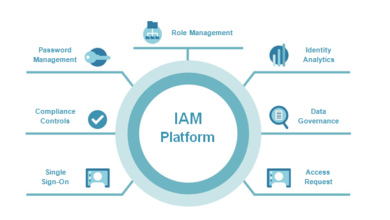What is SAP MDG (Master Data Governance)? What is the SAP MDG future?

What is SAP MDG?
SAP MDG (SAP Master Data Governance) is a set of apps for managing master data in line-of-business activities. Duplicate and inconsistent master data across different systems is a big issue for all areas of business. SAP MDG provides a structure and tool to ensure that master data is consistent throughout end-to-end business processes.
According to the technical research organization, master data is a consistent and uniform set of identifiers and extended characteristics that represents a business’s fundamental entities, including customers, hierarchy, prospects, citizens, suppliers, sites, and a chart of accounts.
According to Gartner, every business possesses Master Data, but each company’s definition and components are distinct. As a result, most companies end up with no or insufficient definitions of what constitutes Master Data.
SAP Master Data Governance is the logical extension in the SAP Business Suite of the business processes allowing maintenance, distribution and basic data governance development.
MDG provides a centralized business process for producing, modifying, and distributing master data, as the name implies. In addition, MDG centralizes data governance and assists in data consolidation, lowering total expenditures. Learn at SAP MDG Training at 3RI Technologies and make your career in SAP Master Data Governance.
How does SAP Master Data Governance (MDG) work?
The SAP Master Data Governance solution offers ready-to-use, domain-specific master data governance, allowing you to centrally produce, alter, and distribute master data throughout your business system or decentrally own and consolidate master data. In addition, fast connectivity with other SAP solutions enables data models, business logic, and validation frameworks to be reused, as well as open interaction with third-party products and services to support your whole technological stack.
What Makes MDG the Best Option?
The main advantage of MDG is the speed with which it can be implemented. Many of MDG’s core technological components are model-driven and may be implemented without the need for code. SAP Business Workflow, ABAP Dictionary, BRFPlus and WDA FPM are technological features that have long been utilized in numerous SAP products. They’ve grown a lot over time, and each one is now a fully functional solution in its own right.
MDG is a new solution that has grown significantly in recent years. However, since it is built on well-established technological components, it has a high level of stability and can be deployed quickly.
SAP’s Master Data Management solution is MDG. NetWeaver MDM is the most recent version, which has been decommissioned and phased out. Although NetWeaver MDM was a fantastic product, it is no longer available. According to most specialists who have worked on it, one of the most significant drawbacks with NetWeaver MDM is the lengthy installation periods.
Requirements for SAP MDG
SAP MDG is so general that it may be used by almost any IT expert or prospective IT expert. However, we may restrict down the course to professionals with the following backgrounds for the convention:
SAP MDG’s Vast Potential
Master Data Management is vital for all firms. Therefore, MDG is promising. The value of data to companies is difficult to overestimate. Non-technical individuals have grasped the importance of data in organizations and how it is used daily to help companies accomplish new business objectives. However, when it comes to business and technical specialists who understand how data works and how it is utilized, the importance of data in organizations across the globe is becoming more apparent.
Any analysis performed on such massive amounts of business/industry data is typically regarded as only as good as the Master Data against which it is plotted. Such assessments need precise dimensions, which must be met. The same may be said for the efficiency of essential operations (such as ERP) that rely on Master Data values to a great degree.
Data governance advantages Now and for the future
Data governance is described as the process of validating data for correctness by the norms, regulations, or norms that a company requires for its specific operations.
Several firms are rapidly expanding in the present market, with systems processes producing many transactions and producing large volumes of new data, ranging from the addition of new customers, suppliers, and supplies to payments, debits, and credits.
There is a risk of entering inaccurate or duplicate data automatically or manually, resulting in a large data-related catastrophe for decision-making and executing new company strategies. As a result, companies are training their people and updating their technology and processes to maintain data quality across time to exploit data as a strategic asset.



